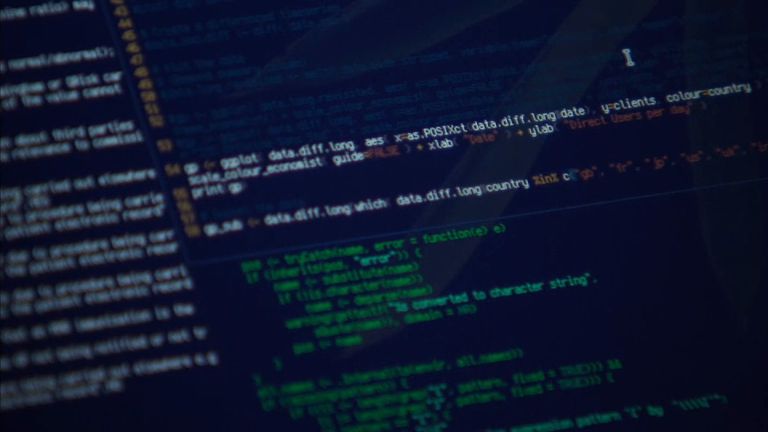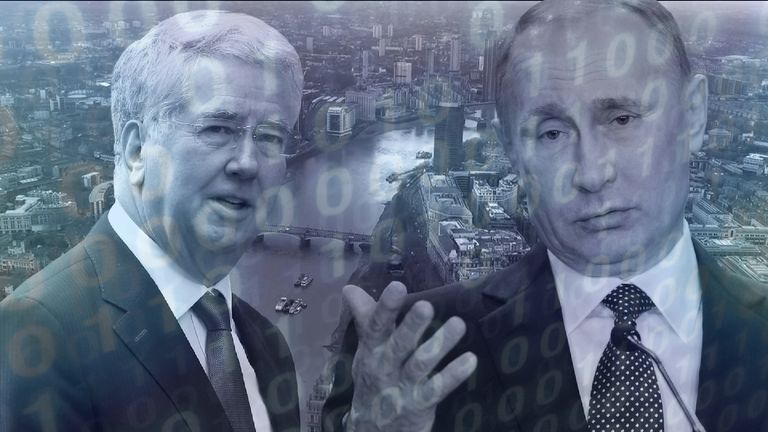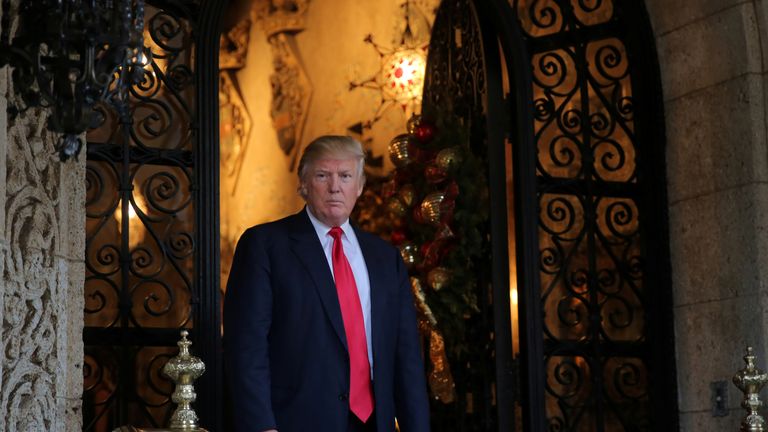UK firms 'chronically understaffed' in face of cyber threat
A study says that the global shortfall of cyber security workers will reach 1.8 million in the next five years.
Tuesday 14 February 2017 13:21, UK
UK companies are "chronically understaffed" to deal with the online threat, Sky News has learned.
The news comes as the Queen today officially opens the National Cyber Security Centre (NCSC).
The NCSC is part of intelligence agency GCHQ and is intended to be the UK's authority on cyber security. It will bring together intelligence agencies, government bodies, private businesses and the public.
NCSC chief executive Ciaran Martin said the centre's job is to "make the UK the safest place to live and do business online".
But a survey from ISC², a professional organisation for security professionals, has found 66% of British companies are chronically understaffed and do not have enough specialists to deal with the growing online threat.
Globally, the shortfall of cyber security workers will reach 1.8 million in the next five years, a 20% increase in the five-year projection made in 2015 (1.5 million by 2020).
"Britain is transforming its capabilities in cyber defence and deterrence," said chancellor Philip Hammond.
"It's crucial we take action now to defend ourselves and protect our economy."
The importance of the NCSC to the Government is reflected in its opening by the Queen and Prince Philip, as well as the attendance of the chancellor, the home secretary and the defence secretary.
Last year, the Government announced a five-year national cyber security strategy, along with £1.9bn in investment.
The creation of the NCSC was announced by then-chancellor George Osborne in November 2015.
Even in the relatively short period since, online threats have proliferated.
US intelligence agencies accused Russia of hacking during the presidential election, with the leaking of emails from the Democratic National Committee.
Physical infrastructure has been attacked digitally. Parts of Ukraine's power grid were taken offline in December 2015 and again in December 2016.
The NHS has also been attacked, with operations cancelled as a result of hospital networks being shut down.
And vulnerabilities in so-called internet of things devices - including digital video records, surveillance cameras and home routers - have led to outages.
The Mirai botnet - a network of millions of linked, infected devices - made sites including Amazon and Twitter unavailable, after attacking the fundamental architecture of the internet.
The NCSC, which has been operational since October last year, has already mobilised to respond to attacks on 188 occasions.
Earlier this month, the House of Commons Public Accounts Committee and criticised the "alphabet soup" of different agencies that preceded the opening of the NCSC.
Its chair, Meg Hillier MP, told Sky News: "At one point there were 40 different organisations involved in tackling data security, including cyber security.
"The whole point about this centre is that, for the really high-end national security risks, it brings the right people in the right place.
"But there's a lot riding on this, a lot of expectation about what the National Cyber Security Centre will deliver. So there's a lot still prove."





